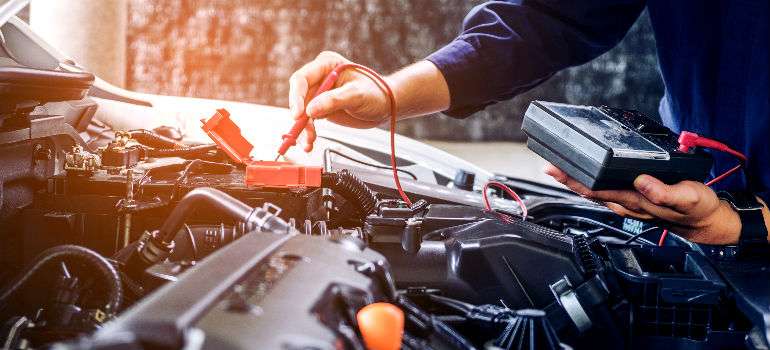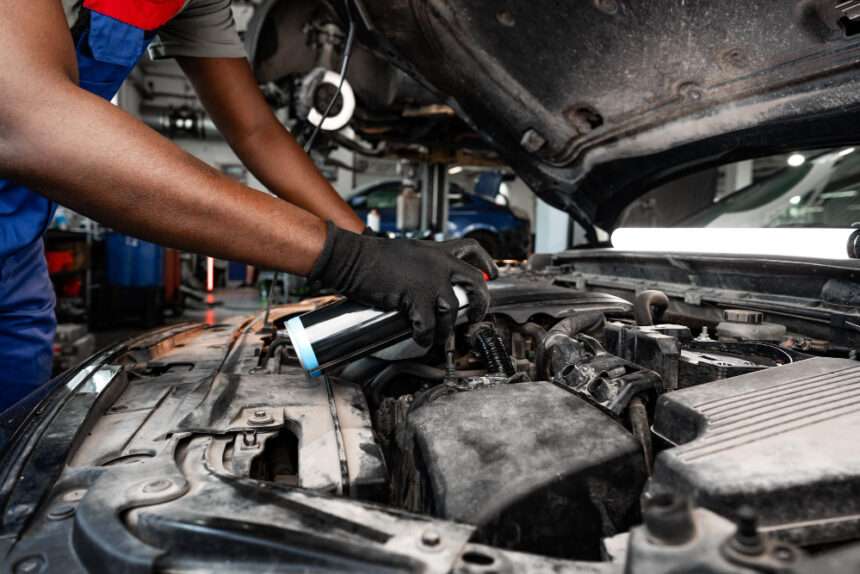Cars are an essential part of modern life, providing convenience, comfort, and the freedom to travel long distances. However, like any complex machine, a vehicle needs regular care and attention to ensure it stays in top shape. Proper maintenance is key to prolonging the life of your car, reducing the need for costly repairs, and maintaining its performance. Whether you own a brand-new car or an older model, regular maintenance is the best investment you can make.
In this comprehensive guide, we will delve into the various aspects of car maintenance, from simple tasks you can perform yourself to more complex jobs that may require professional attention. Let’s explore how to maximize the lifespan of your vehicle through effective maintenance practices that will keep it running smoothly for years to come.
1. Understanding the Importance of Regular Maintenance
Many car owners overlook routine maintenance, thinking it’s unnecessary if their vehicle seems to be running fine. However, this is a risky assumption. Regular maintenance helps identify small problems before they escalate into major, costly repairs. It also ensures that your car continues to operate efficiently, which can improve fuel economy and reduce harmful emissions.
Routine maintenance typically involves checking and replacing key parts, such as oil, tires, brakes, and filters. By staying on top of these tasks, you can catch any issues early on and prevent breakdowns. Additionally, well-maintained cars have higher resale values, making maintenance a smart financial decision as well.

2. The Basics of Car Maintenance: What You Should Check Regularly
There are several components of your vehicle that require regular attention. While some maintenance tasks can be completed at home, others are best left to a professional mechanic. Below are some of the most important areas to focus on:
2.1. Oil Changes: The Heart of Your Engine
One of the most essential maintenance tasks is changing the oil in your car. Oil lubricates the engine, reducing friction and preventing overheating. Over time, oil breaks down and becomes less effective, leading to engine wear and tear. To keep your engine running smoothly, it’s essential to change the oil and replace the oil filter regularly.
Generally, it’s recommended to change the oil every 3,000 to 5,000 miles, depending on the type of oil and the manufacturer’s recommendations. Synthetic oils may last longer, but it’s important to follow the guidelines specific to your vehicle.
2.2. Check and Replace Air Filters
The air filter in your car prevents dirt, debris, and other contaminants from entering the engine. Over time, the air filter can become clogged, reducing engine performance and fuel efficiency. Replacing the air filter is a quick and inexpensive task that can improve your car’s performance and fuel economy.
It’s generally recommended to check the air filter every 12,000 to 15,000 miles and replace it as needed.
2.3. Tire Care and Rotation
Your tires are the only part of your car that makes contact with the road, so keeping them in good condition is crucial for safety and performance. Regularly check the tire pressure to ensure it’s at the recommended level. Under-inflated tires can cause poor fuel efficiency, while over-inflated tires can lead to uneven wear and handling issues.
In addition to checking tire pressure, it’s important to rotate your tires regularly. Tire rotation helps ensure even wear and extends the lifespan of the tires. Most experts recommend rotating your tires every 6,000 to 8,000 miles.
2.4. Brake Maintenance
Your car’s brakes are vital for safety, so it’s important to keep them in top condition. Regularly inspect the brake pads and rotors for wear. If you hear squealing noises or experience a reduction in braking performance, it may be time to replace the brake pads. Brake fluid should also be checked and replaced periodically to ensure proper brake function.
Most mechanics recommend having your brakes inspected at least once a year.
2.5. Battery Care
A well-maintained battery is essential for starting your car and powering its electrical systems. Over time, car batteries can lose their charge or develop corrosion, leading to starting issues. Regularly check the battery terminals for signs of corrosion, and clean them if necessary. If your battery is over three years old, it may be time to replace it, as batteries typically last between 3 to 5 years.
2.6. Fluid Checks: Engine Coolant, Transmission, and Power Steering
Car fluids play a crucial role in ensuring smooth operation. Engine coolant prevents the engine from overheating, while transmission fluid ensures smooth shifting and proper operation of the transmission. Power steering fluid helps with steering ease, and brake fluid ensures efficient braking.
Regularly check the fluid levels and top them up as necessary. If any fluid looks dirty or low, have it flushed or replaced. Checking fluids should be done every 3,000 to 5,000 miles.
3. Seasonal Maintenance: Preparing Your Car for Different Weather Conditions
Seasonal changes can have a significant impact on your vehicle’s performance. Preparing your car for each season can help prevent weather-related breakdowns and ensure your vehicle is ready to handle the specific demands of each time of year.
3.1. Winter Maintenance
Cold weather can put a strain on your vehicle, so it’s essential to take extra steps to prepare for winter:
- Check the battery: Cold temperatures can cause batteries to lose charge more quickly. Make sure your battery is in good condition and fully charged.
- Tires: If you live in an area with snow or ice, consider switching to winter tires. They are designed to provide better traction in cold, snowy conditions.
- Engine coolant: Make sure your coolant is mixed with the correct ratio of antifreeze to prevent freezing in low temperatures.
- Wiper blades and windshield washer fluid: Replace worn wiper blades and ensure your windshield washer fluid is filled with a winter-grade solution.
3.2. Summer Maintenance
Hot weather can also affect your car, especially the engine and cooling systems:
- Cooling system: Check the radiator and coolant levels regularly to avoid engine overheating.
- Tire pressure: High temperatures can cause tires to expand, so it’s essential to monitor tire pressure during the summer months.
- Air conditioning: Ensure your air conditioning system is working properly, as summer heat can make driving uncomfortable without it.
4. When to Seek Professional Help
While many maintenance tasks can be handled by car owners, certain issues require professional expertise. If you’re ever unsure about a problem, it’s always safer to take your car to a certified mechanic. Below are some signs that indicate you should seek professional help:
- Unusual engine sounds or vibrations
- Warning lights on the dashboard (check engine light, oil light, etc.)
- Poor acceleration or engine performance
- Fluid leaks under the car
- Trouble starting the car or frequent stalling
A trusted mechanic will be able to diagnose the issue and recommend the necessary repairs to keep your vehicle running smoothly.
5. The Benefits of Preventative Maintenance
Investing in preventative maintenance not only keeps your car running longer but also saves you money in the long run. Addressing minor issues before they become major problems can prevent expensive repairs and help maintain your car’s resale value. Moreover, a well-maintained vehicle is safer to drive, as regular checks ensure that essential safety features like brakes, tires, and lights are functioning correctly.
Additionally, preventative maintenance can improve fuel efficiency, reducing the amount of money you spend on gas. Regular oil changes, tire rotations, and air filter replacements can all contribute to better gas mileage, allowing you to go further on each tank.
6. DIY vs. Professional Car Maintenance: What You Can and Can’t Do
While there are many simple maintenance tasks that most car owners can perform themselves, there are also complex tasks that require professional tools and expertise. Here’s a breakdown of what you can handle on your own and when it’s time to call in a professional:
6.1. DIY Tasks:
- Changing the oil and oil filter
- Replacing air filters and cabin filters
- Rotating tires and checking tire pressure
- Changing wiper blades
- Replacing light bulbs (headlights, taillights, etc.)
- Checking and topping off fluids (coolant, brake fluid, etc.)
6.2. Professional Tasks:
- Engine diagnostics
- Transmission repairs
- Brake pad and rotor replacement
- Suspension repairs
- Electrical system repairs
- Air conditioning repairs
While DIY maintenance can save money, certain tasks require specialized knowledge and equipment. It’s important to know your limits and seek professional help when necessary.
7. Conclusion
Regular maintenance is the key to ensuring your car runs for as long as possible, efficiently and safely. By staying on top of routine tasks like oil changes, tire care, and brake inspections, you can prevent major problems and extend the life of your vehicle. Remember, a well-maintained car not only performs better but also retains its value longer, saving you money in the long term.
Whether you’re a seasoned DIY mechanic or a first-time car owner, incorporating regular maintenance into your routine will help keep your car in top condition. By following the tips outlined in this guide, you can enjoy peace of mind, knowing your vehicle is always ready for the road ahead.

